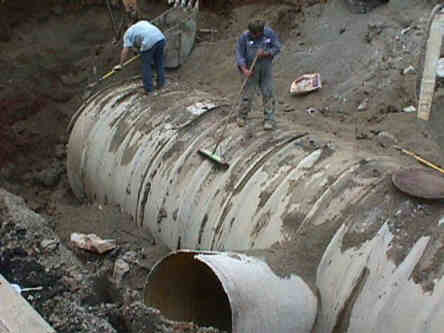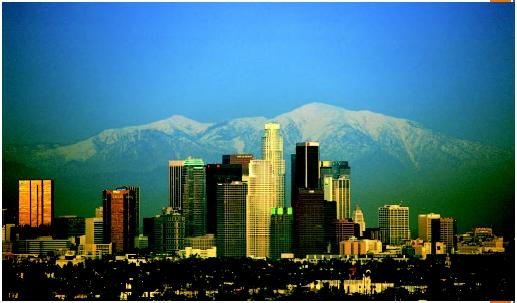
Pollution:-
Pollution is the introduction of substances or energy into the environment, resulting in deleterious effects of such a nature as to endanger human health, harm living resources and ecosystems, and impair or interfere with amenities and other legitimate uses of the environment.[1] The major forms of pollution include:








- Air pollution, the release of chemicals and particulates into the atmosphere. Common examples include carbon monoxide, sulfur dioxide, chlorofluorocarbons (CFCs), and nitrogen oxidesproduced by industry and motor vehicles. Photochemical ozone and smog are created as nitrogen oxides and hydrocarbons react to sunlight.

- Water pollution via surface runoff and leaching to groundwater.

- Soil contamination occurs when chemicals are released by spill or underground storage tank leakage. Among the most significant soil contaminants are hydrocarbons, heavy metals,MTBE[2], herbicides, pesticides and chlorinated hydrocarbons.

- Radioactive contamination, added in the wake of 20th-century discoveries in atomic physics. (See alpha emitters and actinides in the environment.)

- Noise pollution, which encompasses roadway noise, aircraft noise, industrial noise as well as high-intensity sonar.

- Light pollution, includes light trespass, over-illumination and astronomical interference.

- Visual pollution, which can refer to the presence of overhead power lines, motorway billboards, scarred landforms (as from strip mining), open storage of trash or municipal solid waste.

- Thermal Pollution, is a temperature change in natural water bodies caused by human influence.

Sources and causes
pollution Motor vehicle emissions are one of the leading causes of air pollution.[3][4][5] China, United States, Russia, Mexico, and Japan are the world leaders in air pollution emissions; however, Canada is the number two country, ranked per capita. Principal stationary pollution sources include chemical plants, coal-fired power plants, oil refineries,[6] petrochemical plants,nuclear waste disposal activity, incinerators, large livestock farms (dairy cows, pigs, poultry, etc.), PVC factories, metals production factories, plastics factories, and other heavy industry. Some of the more common soil contaminants are chlorinated hydrocarbons (CFH), heavy metals (such as chromium, cadmium--found in rechargeable batteries, and lead--found in lead paint,aviation fuel and still in some countries, gasoline), MTBE, zinc, arsenic and benzene. Ordinary municipal landfills are the source of many chemical substances entering the soil environment (and often groundwater), emanating from the wide variety of refuse accepted, especially substances illegally discarded there, or from pre-1970 landfills that may have been subject to little control in the U.S. or EU. Pollution can also be the consequence of a natural disaster. For example, hurricanes often involve water contamination from sewage, and petrochemical spills from ruptured boats or automobiles. Larger scale and environmental damage is not uncommon when coastal oil rigs or refineries are involved. Some sources of pollution, such as nuclear power plants or oil tankers, can produce widespread and potentially hazardous releases when accidents occur. In the case of noise pollution the dominant source class is the motor vehicle, producing about ninety percent of all unwanted noise worldwide.Effects on human health
Adverse air quality can kill many organisms including humans. Ozone pollution can cause respiratory disease, cardiovascular disease, throat inflammation, chest pain, and congestion. Water pollution causes approximately 14,000 deaths per day, mostly due to contamination of drinking water by untreated sewage in developing countries. Oil spills can cause skin irritations and rashes. Noise pollution induces hearing loss, high blood pressure, stress, and sleep disturbance.Effect on ecosystems
- Sulfur dioxide and oxides of nitrogen can cause acid rain which reduces the pH value of soil.
- Soil can become infertile and unsuitable for plants. This will affect other organisms in the food web.
- Smog and haze can reduce the amount of sunlight received by plants to carry outphotosynthesis.
- Invasive species can out compete native species and reduce biodiversity. Invasive plants can contribute debris and biomolecules (allelopathy) that can alter soil and chemical compositions of an environment, often reducing native species competitiveness.

No comments:
Post a Comment